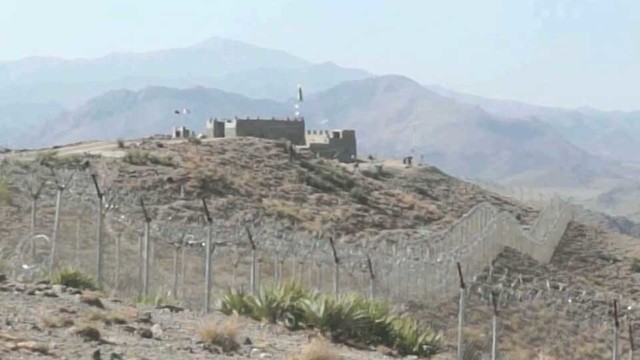Pakistan has started building a 2,300 kilometer fence along its border with Afghanistan. The $500 million barrier is designed to help prevent attacks by militants.
CGTN correspondent Danial Khan reports from the northwestern part of Pakistan.
Following Pakistan’s independence from British rule in 1947, the border between Pakistan and Afghanistan was not secured, allowing the regular cross-border movement of people.
Since the 9/11 attacks in the U.S. and the subsequent start of the War on Terror, the tribal areas along the Pakistan-Afghanistan border became home to terrorists. They have carried out attacks on both sides of the border and found sanctuaries in these areas.
Recently, Pakistan began fencing the border, to halt the cross-border movement. Major General Nauman Zakaria, Commander of the South Waziristan Region, said “most of the area which is crossable, which is more critical, sensitive from our point of view, from Afghan’s point of view, where the control lacks, from their side, is going to be completely fenced.”
In addition to the fence, surveillance technology is also being installed along the border to prevent attacks. Forts and watch towers are being built. 750 forts have been planned every one and a half to three kilometers. Nearly 100 forts have already been constructed.
U.S. President Donald Trump has accused Pakistan of harboring terrorists. But security experts like Arched Sharif say that Pakistan has done its part. “Almost 40 percent of the country is under the control of Afghan Taliban. There are failures; they have been blaming Pakistan and now with the fencing that excuse has also gone. Now they will have to find something else to cry about, vis-a-vis Pakistan and the measures that Pakistan is taking. ”
According to the Pakistan army, high-infiltration-prone border areas in Bajaur, Mohmand and Khyber are being fenced in the first phase. The remaining border areas, including Balochistan, will be completed in the second phase.
With the China-Pakistan economic corridor developing, there is a greater need for peace in the region, for economic activity to move ahead unhindered. Securing volatile borders will support the element of peace which is required for the One Belt One Road initiative.
 CGTN America
CGTN America
